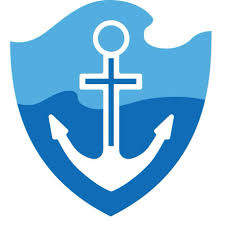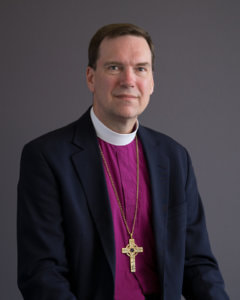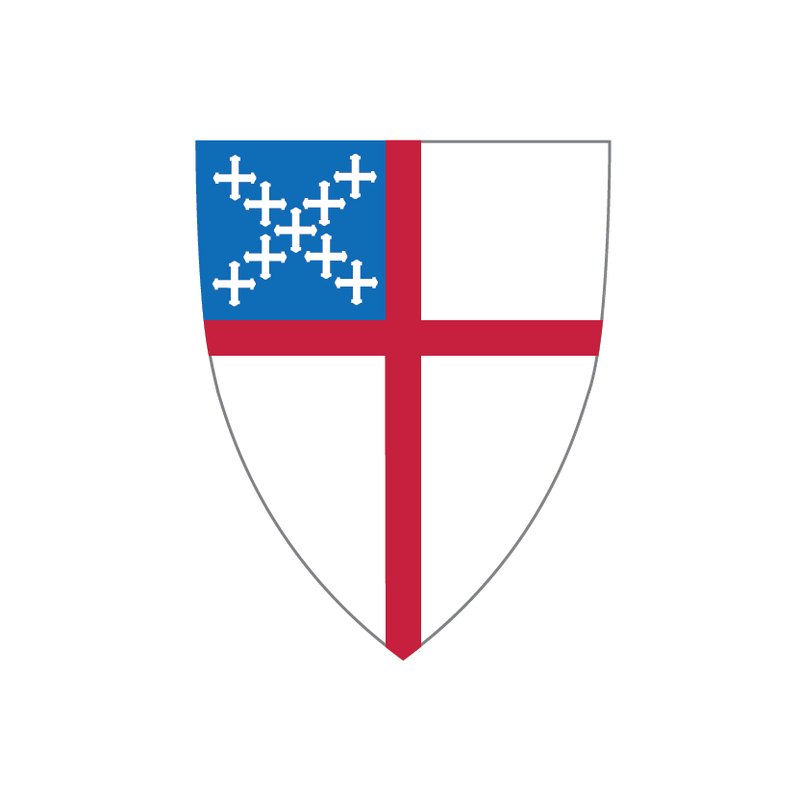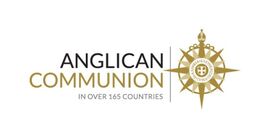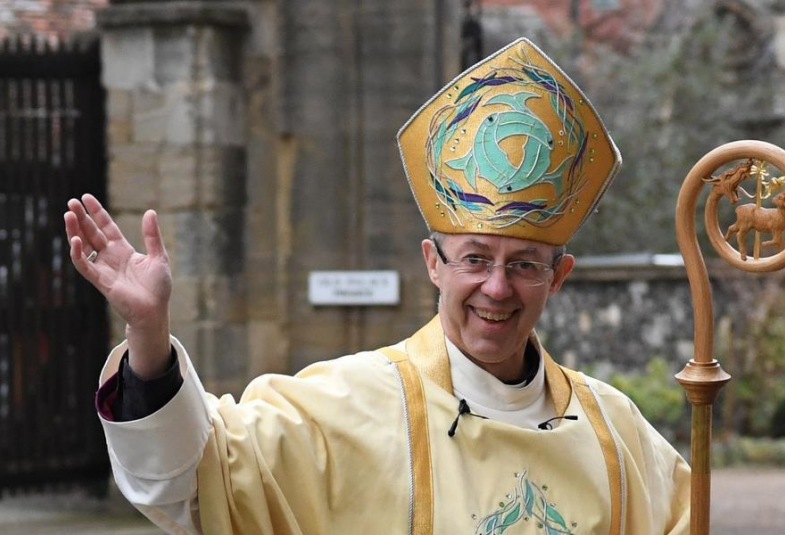The Episcopal Diocese of Rhode Island
The Rt. Rev. W. Nicholas Knisely, Jr.,
Bishop of Rhode Island
Bishop of Rhode Island
"The Episcopal Diocese of Rhode Island is a gathering of the 52 Episcopal Churches in our state, served by Bishop Knisely and his staff. The current Bishop, The Right Rev. W. Nicholas Knisely, Jr. was consecrated the 13th Bishop of RI in 2012. Bishop Knisely and his staff support congregations as they carry out their mission and ministries. They provide resources and educational opportunities to encourage spiritual development and outreach in the churches of this diocese, as well as in the greater community. Together, our Bishop and churches work to do large scale ministry no church could operate alone, such as the ECC Summer Camp, Hispanic Ministries, ministries on college and university campuses, and more.
Our diocese is located in the regional Province of New England also known as Province I. We are a colonial Diocese, and our history traces back from Pastor Blackstone’s preaching beneath the “Catholic Oak” in Lonsdale through the American Revolution and to the present day."
See more at www.episcopalri.org
Our diocese is located in the regional Province of New England also known as Province I. We are a colonial Diocese, and our history traces back from Pastor Blackstone’s preaching beneath the “Catholic Oak” in Lonsdale through the American Revolution and to the present day."
See more at www.episcopalri.org
The Episcopal Church
The Most Rev. Michael Bruce Curry,
Presiding Bishop and Primate of the Episcopal Church
Presiding Bishop and Primate of the Episcopal Church
"The Episcopal Church welcomes all who worship Jesus Christ, in 111 dioceses and regional areas in 17 nations. The Episcopal Church is a member province of the worldwide Anglican Communion. The mission of the church, as stated in the Book of Common Prayer’s catechism (p. 855), is "to restore all people to unity with God and each other in Christ."
https://episcopalchurch.org/what-we-believe
As part of that mission, we’re following Jesus into loving, liberating and life-giving relationship with God, with each other and with the earth as the Episcopal branch of the Jesus Movement. We seek every day to love God with our whole heart, mind and soul, and to love our neighbors as ourselves (Matthew 22:36-40). For the Episcopal Church, the Jesus Movement calls us to focus on three specific Priorities:
EVANGELISM:
Listen for Jesus' movement in our lives and in the world. Give thanks. Proclaim and celebrate it! Invite the Spirit to do the rest.
RECONCILIATION:
Embody the loving, liberating, life-giving way of Jesus with each other.
CREATION CARE:
Encounter and honor the face of God in creation."
Listen for Jesus' movement in our lives and in the world. Give thanks. Proclaim and celebrate it! Invite the Spirit to do the rest.
RECONCILIATION:
Embody the loving, liberating, life-giving way of Jesus with each other.
CREATION CARE:
Encounter and honor the face of God in creation."
See more at episcopalchurch.org.
The Anglican Communion
The Most Rev. and Rt. Hon. Justin Welby,
Archbishop of Canterbury
Archbishop of Canterbury
"The Anglican Communion is one of the world’s largest Christian communities. It has tens of millions of members in more than 165 countries around the globe. The Communion is organised into a series of provinces and extra- provincial areas. The provinces are subdivided into dioceses, and the dioceses into parishes. Some provinces are national, others are regional. All are in communion – or a reciprocal relationship – with the See of Canterbury and recognise the Archbishop of Canterbury as the Communion’s spiritual head. But there is no central authority in the Anglican Communion. All of the provinces are autonomous and free to make their own decisions in their own ways – guided by recommendations from the four Instruments: the Archbishop of Canterbury, the Lambeth Conference, the Primates’ Meeting and the Anglican Consultative Council.
The word Anglican originates from the Medieval Latin phrase ecclesia anglicana, which means the English Church. Over the years, national churches gained independence from the Church of England and the Anglican Communion gradually became a global family of national and regional Churches. Anglicans and Episcopalians have always worked and worshipped together across national borders to support each others' lives and ministry. Communion members from different provinces bring a range of insight, experience and wisdom to joint endeavours at national and international level."
See more at http://www.anglicancommunion.org
The word Anglican originates from the Medieval Latin phrase ecclesia anglicana, which means the English Church. Over the years, national churches gained independence from the Church of England and the Anglican Communion gradually became a global family of national and regional Churches. Anglicans and Episcopalians have always worked and worshipped together across national borders to support each others' lives and ministry. Communion members from different provinces bring a range of insight, experience and wisdom to joint endeavours at national and international level."
See more at http://www.anglicancommunion.org

